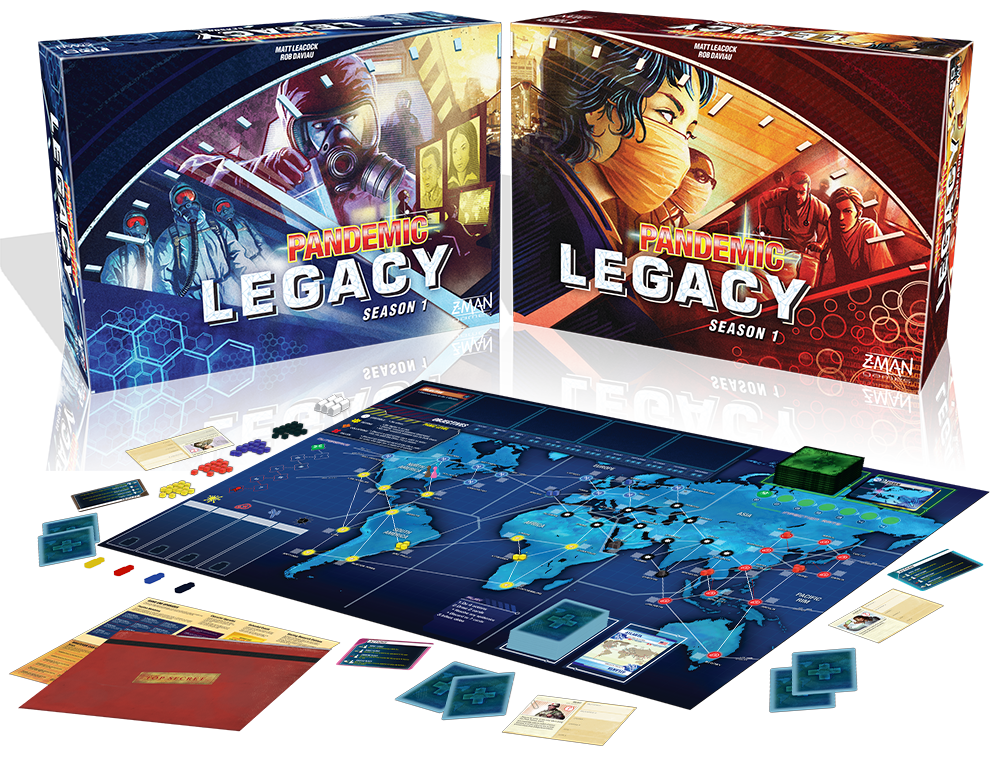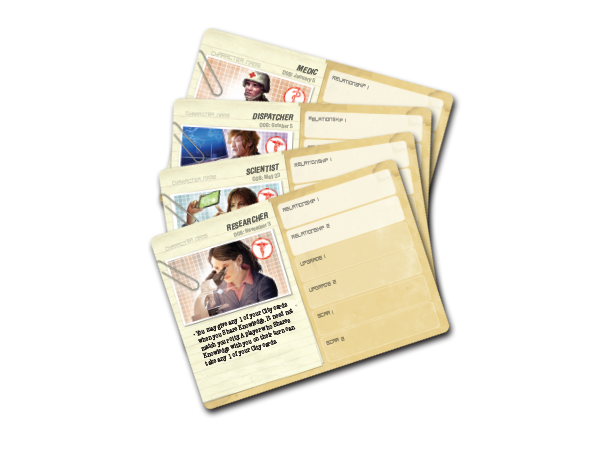
(Note: there are two versions of the box art for the game; contents are identical.)
The game board itself also changes throughout your year long campaign, in both good ways and bad. You might be able to create permanent research stations that are added to the board before future games begin. If diseases are allowed to outbreak in cities, panic levels increase. At first, these panic levels have only minor effects that are mainly annoying, but as the rioting gets worse, it becomes much more difficult to navigate to these cities. This of course can lead to increased rioting which further compounds the problem. It’s a challenge, indeed, to manage both the objectives of the current game as well as play with the long-term board state in mind.
One mechanic in Pandemic Legacy, the funding level, ensures that the balance between fun and challenge is always where it needs to be. When you win a game, your funding level goes down, and when you lose, it goes up. You can add special funded event cards to the player deck based on the current funding level. These cards can be played anytime, and have powerful effects like removing disease cubes from anywhere on the board, or moving a player directly from one city to another. You can even remove a city card from the current game, ensuring that the disease doesn’t get any worse there than it already is in that city. These effects go a long way towards making the game easier when you fail, and there is even a more powerful catch up effect in place if you lose four games in a row. These mechanics keep the game fun and exciting no matter what went wrong in your previous sessions.

Before you run right out and buy a copy of Pandemic Legacy, there are a few other things to be aware of. First of all, the “Legacy” parts of the game mean you are writing on cards, putting stickers on the board, and even (gulp) destroying cards forever. This might put some people off. Also, there is little replay value once the campaign is finished beyond some fan-made variants. You will play between 12 and 24 games, though, which is a good run. I’d also only recommend playing with a persistent group of players; much of the experience will be lost of everyone isn’t there from start to finish.
I can’t really say enough about how much I enjoyed playing through Pandemic Legacy with my family. There are so many great moments throughout the game, when the game changes in huge ways, or you manage to pull off a win out of nowhere, or even when something you did in the previous game comes up roses later on. We played through the entire campaign in 19 sessions, and it took us just over a month. We rarely play the same game that much in such a short time, but that’s how great Pandemic Legacy is. If you have even a passing interest in cooperative tabletop games, and a dedicated group to play it with, I’d advise you to get a copy as soon as possible. The world needs your help!